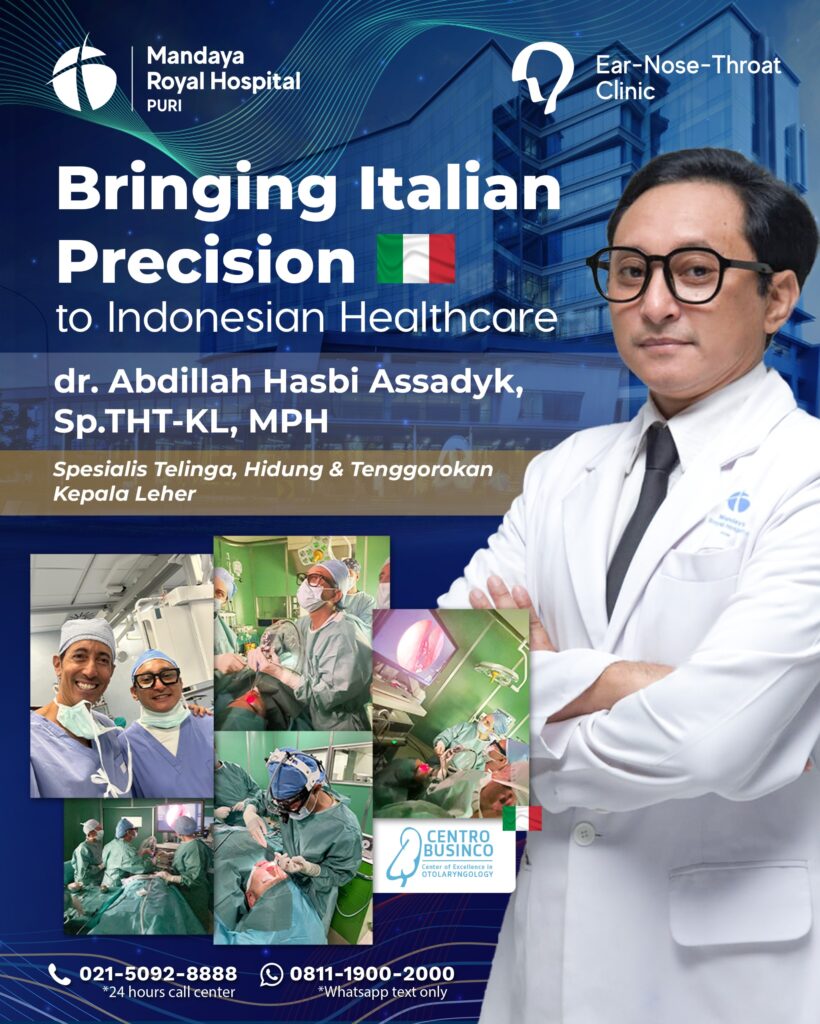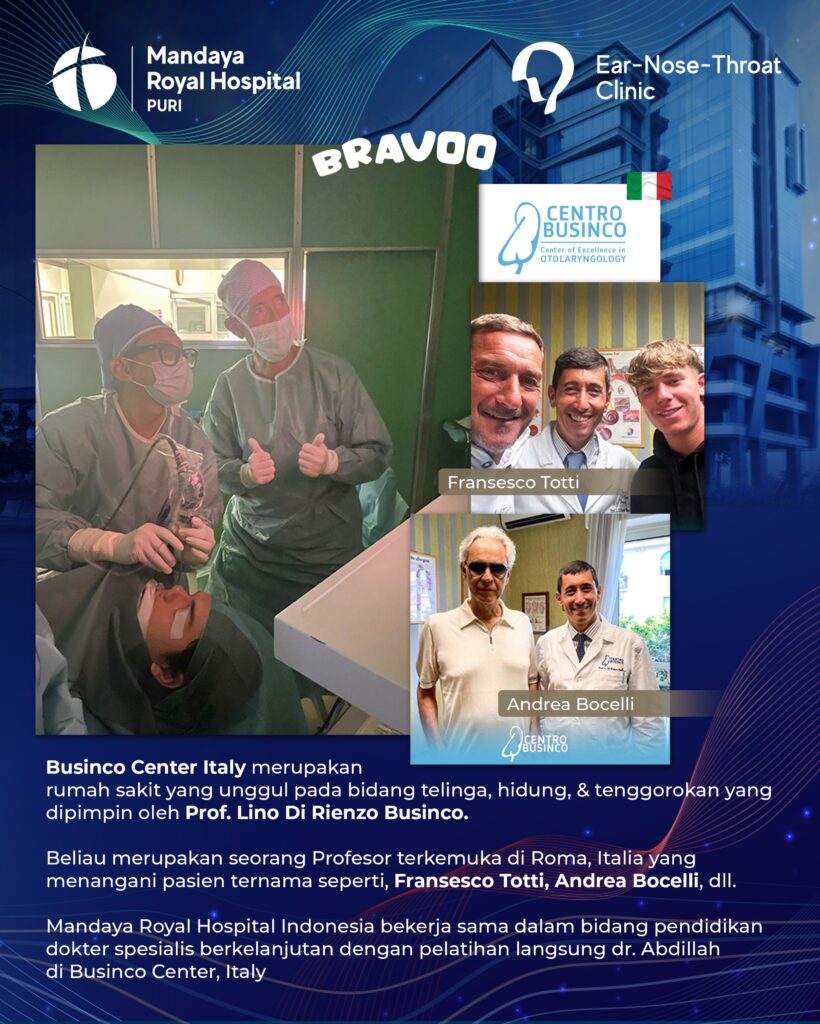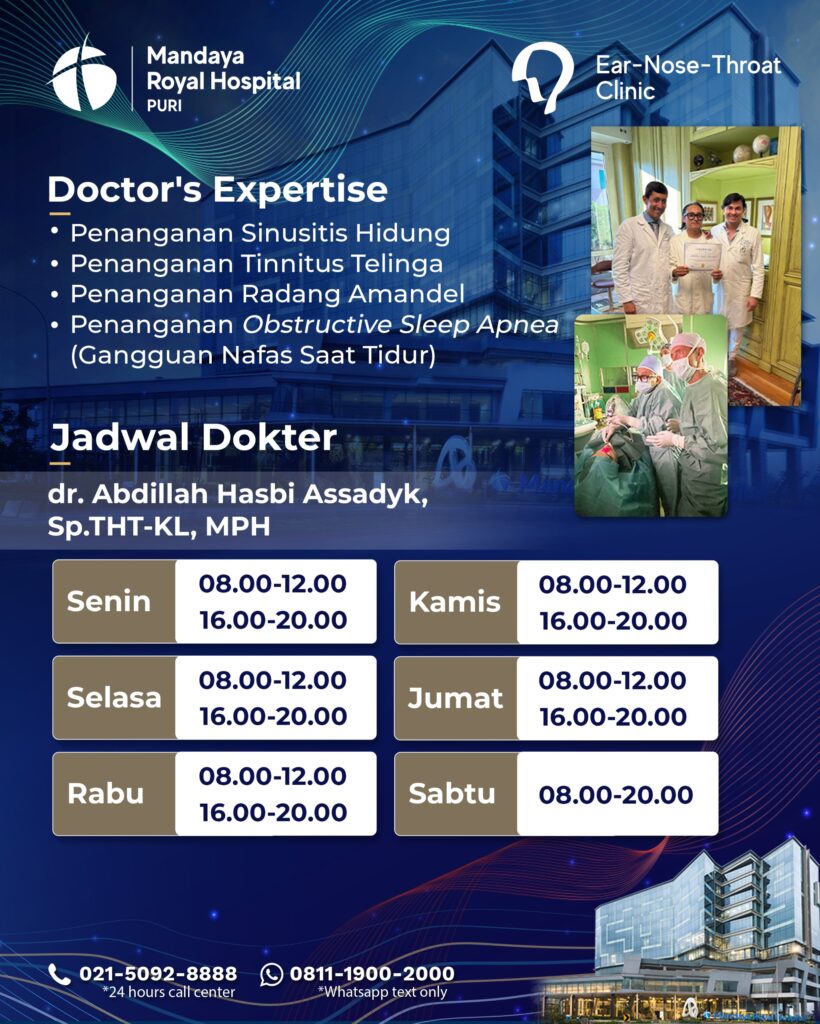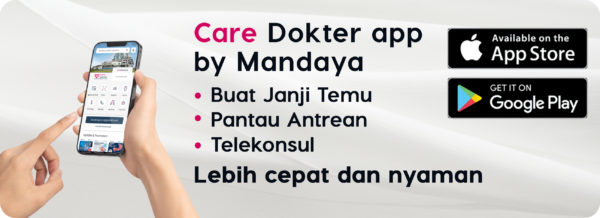Disorders affecting the tonsils and turbinates (structures inside the nose that help regulate airflow) can cause symptoms such as snoring, breathing difficulties, and excessive fatigue after sleep.
A 27-year-old patient experienced these problems for years before finally undergoing Quantum Molecular Resonance (QMR) and plasma coblation procedures performed by dr. Abdillah Hasbi Assadyk, Sp.THT-KL at Mandaya Royal Puri Hospital.
Contents
Initial Symptoms and Diagnosis at Mandaya Royal Puri Hospital
The patient initially complained of frequent sore throats, snoring, and persistent fatigue despite getting enough rest. She also experienced recurring fevers, sometimes up to three or four times a month.
After a thorough examination, doctors at Mandaya Royal Puri Hospital found that the patient had enlarged tonsils and swollen nasal turbinates, which narrowed her airway and caused breathing difficulties.
According to dr. Abdillah, the examination revealed tonsil enlargement narrowing the throat cavity and bilateral turbinate hypertrophy that disrupted airflow and led to sleep disturbances such as snoring and morning fatigue.
Based on these findings, dr. Abdillah recommended tonsil reduction using plasma coblation and turbinate reduction using QMR technology to help open the airway and improve breathing quality.
QMR and Plasma Coblation for Tonsil and Turbinate Reduction
“We reduce the size of the tonsils using plasma coblation and the turbinates using a device called Quantum Molecular Resonance,” explained dr. Abdillah.
Plasma coblation is used to shrink the tonsils without burning the surrounding tissues. It works through precise plasma energy that allows smooth tissue reduction, minimal bleeding, and faster recovery time.
Meanwhile, QMR targets the swollen turbinates in the nasal cavity. This technology uses high-frequency vibrations to break molecular bonds between tissues without burning, making it safer and minimizing thermal effects.
“Quantum molecular resonance uses high-frequency vibration to break tissue bonds. So, it doesn’t burn but directly separates the molecular bonds between tissues,” said dr. Abdillah.
The QMR device generates a temperature of only 45–50°C, much lower than traditional electrocautery tools that can exceed 100°C. This low-temperature process prevents tissue burns and speeds up healing.
“Unlike traditional cautery that generates high heat, the tissue reduced with QMR remains soft. Even if a scab forms, it’s not a burn scab but more like dried tissue that’s easy to clean,” added dr. Abdillah.
Post-procedure evaluations showed that the turbinate surface remained smooth and the size significantly reduced, resulting in better airflow and easier breathing.
Fast and Comfortable Recovery
The patient reported remarkable improvements after the procedures. Snoring and shortness of breath during sleep were greatly reduced, and she woke up feeling more refreshed and energized.
“I went home the day after surgery. The sore throat only lasted for about three days, and then I could eat comfortably again. I felt so much relief after the scabs were removed,” the patient shared.
The recovery process was smooth, with no complications, and the patient was able to return to normal activities quickly. She expressed high satisfaction with both the treatment outcome and the services provided by Mandaya Royal Puri Hospital.
The patient chose Mandaya Royal Puri Hospital for its excellent reputation and strategic location in West Jakarta. She praised the hospital’s modern facilities, friendly nurses, and professional doctors, describing her overall experience as comfortable, reassuring, and pleasant.
About dr. Abdillah Hasbi Assadyk, Sp.THT-KL



dr. Abdillah Hasbi Assadyk, Sp.THT-KL is an Ear, Nose, and Throat – Head and Neck Surgeon (ENT Specialist) practicing at Mandaya Royal Puri Hospital. He is experienced in treating various ENT conditions such as tonsil enlargement, sinusitis, nasal polyps, snoring-related sleep disorders, and turbinate hypertrophy.
Known for his communicative approach and expertise in modern medical technologies like QMR and plasma coblation, dr. Abdillah provides effective and comfortable treatment options for his patients.
Clinic Hours at Mandaya Royal Puri Hospital:
- Monday: 08.00 – 12.00 & 16.00 – 20.00 WIB
- Tuesday: 08.00 – 12.00 & 16.00 – 20.00 WIB
- Wednesday: 08.00 – 12.00 & 16.00 – 20.00 WIB
- Thursday: 08.00 – 12.00 & 16.00 – 20.00 WIB
- Friday: 08.00 – 12.00 & 16.00 – 20.00 WIB
- Saturday: 08.00 – 20.00 WIB
For patients interested in undergoing a QMR procedure with dr. Abdillah at Mandaya Royal Puri Hospital, appointments can be made easily via WhatsApp Chat, the Book Appointment feature, or the Care Dokter app, available on Google Play and the App Store. These platforms allow patients to check queue numbers, manage visits, and access complete hospital information conveniently.
Source: dr. Abdillah Hasbi Assadyk, Sp.THT-KL



